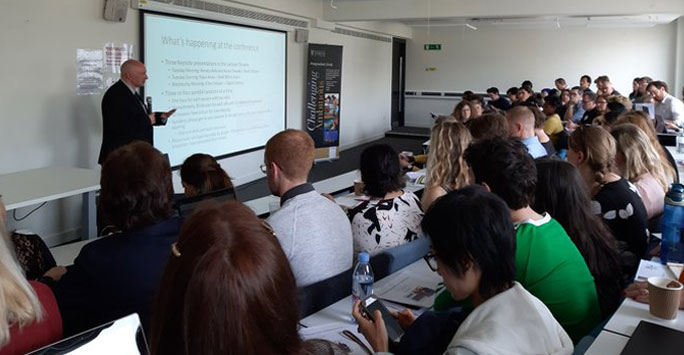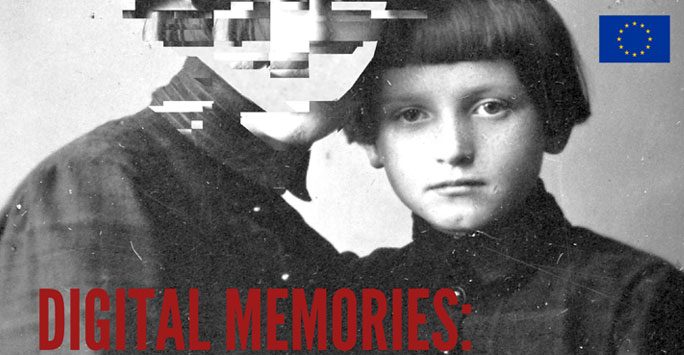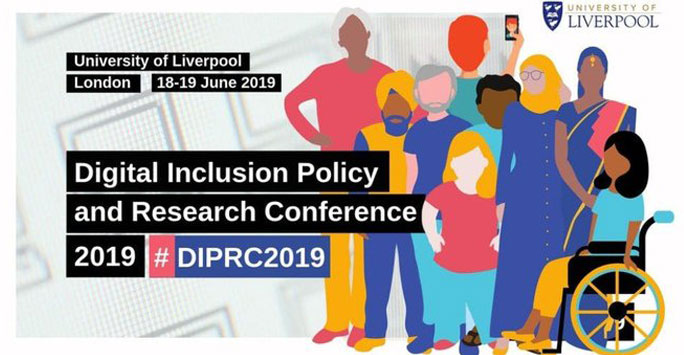All The Latest Events From Digital Humanities & Social Sciences
Posted on: 27 August 2019 by Zoe Alker in 2018 Posts

It's been a busy few months for the Digital Humanities and Social Sciences Research Theme. Here theme lead Zoe Alker updates us with all the events, projects and conferences that have been going on.
Digital Memories: Art, Archives and Activism

On 17 and 18 June 2019, the University of Liverpool hosted the Digital Memories: Art, Archives and Activism international workshop at our London Campus. The event, co-organised by Dr. Jordana Blejmar, Dr. Les Roberts, Dr. Alyssa Grossman, Dr. Wallis Motta, and Dr. Silvana Mandolessi, was a collaboration between the Culture, Space, and Memory Research Cluster, from the Communication & Media department, and the ERC-funded project ‘We are all Ayotzinapa: The role of Digital Media in the Shaping of Transnational Memories on Disappearance’, based at KU Leuven. The workshop was also part of the ‘Keywords conversation´ series.
The main objective of the workshop was to explore the reconfiguration of cultural memory under the impact of the digital turn. The idea was to grasp memory’s entanglement with artistic, activist and archival forces in a digital ecology. Questions that were addressed in the papers included: How do digital technologies contribute to, or trigger, new forms of political and artistic activism? What are the new digital (transnational, interactive, connected) affective communities of memory? How is the notion of the ‘archive’ reconfigured under the impact of digital media? And what concepts, ideas, debates contribute to make sense of memory practices that are distributed between non-human/post-human and human agents?
Speakers included Dr. Joanne Garde-Hansen (Warwick), Dr. Red Chidgey (King’s College), Prof. Ana Longoni (Museo Reina Sofía/CONICET), Dr. Martin Pogačar (Slovenian Academy of Sciences and Art), Prof. Andrew Hoskins (Glasgow), Prof. Wulf Kansteiner (Aaharus), Prof. Wolfgang Ernst (Humboldt University), Prof. Annette Kuhn (Queen Mary), Dr. Zoe Alker (Liverpool), Sebastian Winkler (European Research Council Executive Agency), Dr. Thea Pitman (Leeds), Prof. Susannah Radstone (Monash University), Lene Guercke (Leuven), Martín Zícari (Leuven) and Dr. Katia Olalde (UNAM).
Laser scanning at Lincoln Cathedral

In July, Dr Alex Buchanan, Dr Nick Webb, Dr James Hillson and JR Peterson visited Lincoln cathedral to laser scan the interior for the AHRC funded project ‘Tracing the past: analysing the design and construction of English medieval vaults using digital techniques‘.
Lincoln cathedral is something of a magnet for vault enthusiasts, featuring a magnificent range of mainly thirteenth-century examples which were hugely influential throughout Britain – we’ve already scanned some of their offspring at Chester and Ely. Using the laser scans we are creating digital models enabling analysis of vault geometries, the findings of which will form part of a book publication to be delivered to Routledge in 2020.
Gaming Subscription Predictive Algorithms: A Partnership with Netflix to Assess the Social Life of Algorithms
Dr Phllip Brooker was awarded funding for a project called “Gaming Subscription Predictive Algorithms: A Partnership with Netflix to Assess the Social Life of Algorithms” (1 August, 2019). The project uses Twitter data and interviews to better understand practices of account sharing on streaming platforms like Netflix (i.e. where people pay for one subscription, but have multiple users share an account. The study is interested in the idea of how you build recommender algorithms that assume multiple users (whereas the current norm is to assume only one user with a weird set of tastes)). The project got $22.5k Canadian dollars from the Social Science and Humanities Research Council of Canada, and co-investigators include Patrick Watson (Wilfred Laurier University, Canada) and affiliates from Facebook (Mike Clarke, previously at Netflix).
Digital Inclusion Policy and Research conference 2019

The DIPRC 2019 was held in London on 18th and 19th of June 2019 and attracted more than 70 participants and 50 speakers from more than 20 countries across the world including Greece, India, South Korea, Chile, Canada, USA, Australia, Ukraine, Brazil, Turkey and Hawaii.
The conference held parallel sessions on a variety of topics from digital inequality, digital divide, digital skills for youth, aging, redefining literacy and onto libraries and city interventions and accessibility and intersectional considerations. The conference invited three keynote speakers, the first from Renata Avila and Auska Ovando from the Chilean Organisation Ciudadanía Inteligente who were showing their work around Latin America and trying to teach people digital skills to have better civic participation and understanding of elections.
Then in the evening of the first day we launched the Nuffield Foundation project Me and My Big Data. In the event we showed what is the purpose of the project, what have we done so far and what are our future plans. In short - Our project is about understanding the levels of and variations in UK citizens data literacy, and to develop policy and educational materials to support improving this. To get the full details of our project please visit our website and check updates on our Twitter account - @Meandmybigdata.
To close the evening we had a keynote from Dr. Payal Arora who was talking about her latest book - Inclusion of the Next Billion Users in the Data-driven Society. In the final day we had a keynote talk by Professor Ellen Helsper who was talking about shifting the ways we think about digital literacy.
Throughout the conference participants enjoyed the unique combination of academics, practitioners from various NGOs and policy makers. This mix allowed participants to understand different aspects of the topic of digital inclusion and open up conversations to bridge between practice research and policy making. Participants said that they have enjoyed the diversity and various panels and in particular colleagues who could not physically attend from Brazil and Canada appreciated their ability to take part via Skype. Others who were not able to join physically were able to join the discussions through our Twitter hashtag - #DIPRC2019.
PGR Studentships
Drs Phillip Brooker and Michael Mair have secured two AI-related 1 + 3 studentships funded through the ESRC Standard Competition. Gemma Lough will work on a project called “Demystifying Algorithmic Dystopia, Understanding Artificial Intelligence: An Ethnomethodological Study of Elementary Practices of Reasoning with Algorithms and Code”. Dipanjan Saha will work on an ESRC CASE studentship called, “AI at Work: A Hybrid Study of Artificial Intelligence and Machine Learning in Practice” alongside industrial partners “Peak.ai” in Manchester and a University-based research project called “Big Hypotheses”.
Keywords: Digital Humanities Research Theme.